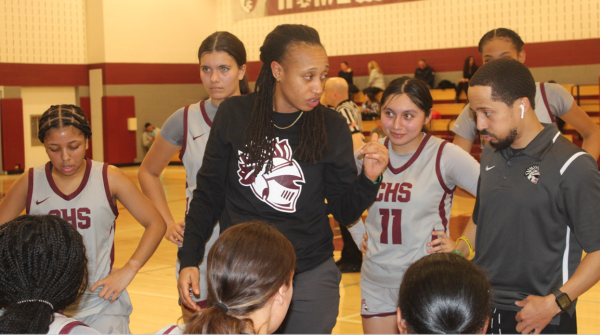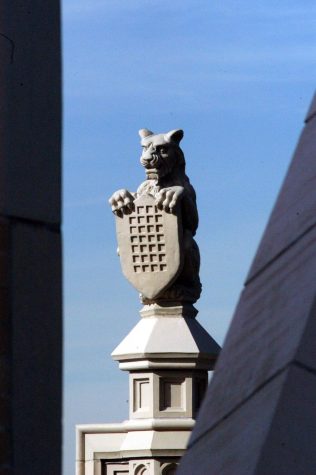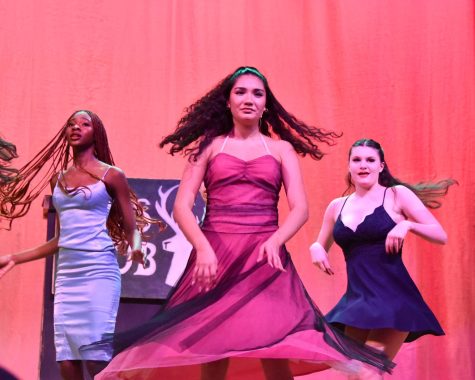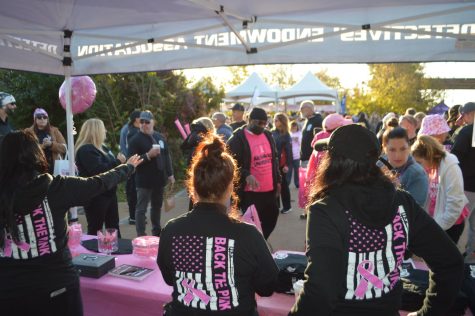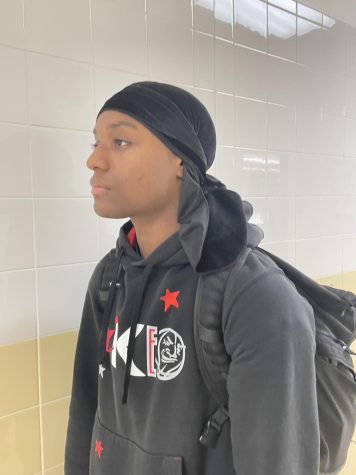Journalism students visit Tinker Tour at Baruch
Students sit in and listen to Mary Beth Tinker as she tells her inspiring story.
A legend in her own right, Mary Beth Tinker stands for the first amendment. In 1965, she wore a black armband in protest of the Vietnam war and was ordered to take it off. Tabloids and newspapers said that she refused and was then suspended from school, yet it had just been hype in order to get empathy for what she had to go through. “I was called into Principal Tanner’s office and she told me to take the armband off. “I was scared and immediately took it off, but I was sus- pended anyway,” said Tinker.
On September 19th, 2013, nine Curtis journalism students joined students from six other high schools to hear Mary Beth Tinker speak about her life, how you can’t defend your rights if you don’t know them, and what led up to and proceeding the cases following her suspension.
In a full room of young journalists Tinker went into detail of her story about being a 13 year old history maker. Tinker’s mother and father had been protestors, so when she got suspended for protecting her rights, they understood. When she was a child, her father was a preacher in Des Moines, Iowa and protested the ban on black children playing in the neighborhood pool; the Tinker family was then kicked out of town. Her mother protested that black people couldn’t work as a pharmacist so she would stand outside the pharmacy singing songs about freedom in protest.
The September 15th bombing of the church in Birmingham, Alabama was a major inspiration for Tinker. She saw on television the numerous children’s bodies left behind by the bombing. This helped Mary Beth to understand that even children can make a difference. Her parents understood her pain of seeing the bodies and later understood why she insisted on the black armband. Mary Beth Tinker not only spoke of her inspirations and past experiences, she also went into detail to how each aspect of the first amendment can be supported and how it has been pushed to its limits by children and teenagers.
“Mary Beth Tinker was a very outspoken woman and I try to teach my newspaper staff to be more confident when making decisions. We are scared to interview people, yet we are older than she was when she wore the armband,” said Curtis Log Editor-in-Chief Dinah Nahid.
During the presentation Tinker told stories of students being forced to be frisked, searched, and not being allowed to protest. Many of these right violations occurred in the last few years.
After her speech the audience was divided into two groups. One group talked in great detail about the different circumstances in which first amendments rights are violated. The students questions were answered by a law- yer from the School Press Law Center. The majority of the questions focused on privacy rights and social network sites.
While the second group created 14-sec- ond vines, or short videos, about what they stand up for. Tinker also shared information about her own life, “I was a lesbian teen in the 1960’s and am now a lesbian adult, so I had to deal with people judging me for being gay and for wear- ing the black armband.”
The students were really able to warm up to Ms. Tinker and saw her more as a person than a name in his- tory class. According to Ms. Turner, “Watching her speak to my students and letting them know that she was their age when she was suspended really resonated with them. Being so close in age, the students could really under- stand what she went through.”

